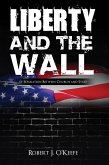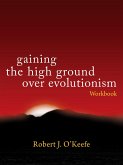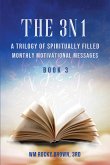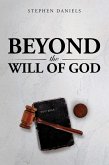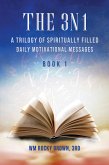liberty? Do the well-considered views of the authors of the Declaration of Independence and the Constitution on the separation between church and state have any relevance today?
Such questions are bypassed in the pragmatic expediencies of politics. But they cannot be overlooked if the American experiment in liberty is to be understood and prolonged. Liberty and the Wall surveys these and other aspects of political liberty as it is enjoyed in the United States. It distills from history the essentials of natural right and consent of the governed, and the necessary virtues of self-reliance and self-governance. It analyzes the
conditions and events that led to a formal separation between political rule and religion for the first time in history. The transition from government over people to people over government and the principles embedded within the Constitution and the Declaration of Independence are explored. Insights are drawn from the Federalist-Anti-Federalist and Lincoln-Douglas debates. The danger of utopian ideals and the place of appeal to authority higher than both people and government receive due attention.
Liberty and the Wall steers clear of conventional, superficial controversies over religious symbols, speech, and practices on public property and in public institutions. Neither is there any pretense about easy fixes to public controversies. Far more germane to the subject are underlying conflicts of values and senses of the good and just in matters of public interest, as opposing metaphysical views contend for political supremacy below the level of popular awareness. Politics is infused with values and concepts of right. The determination of the valuable, the right, and the just is far more the commanding question.
Dieser Download kann aus rechtlichen Gründen nur mit Rechnungsadresse in A, B, BG, CY, CZ, D, DK, EW, E, FIN, F, GR, H, IRL, I, LT, L, LR, M, NL, PL, P, R, S, SLO, SK ausgeliefert werden.



